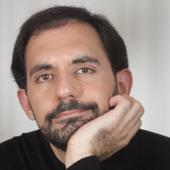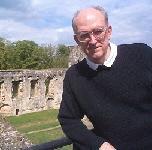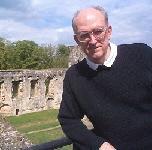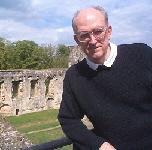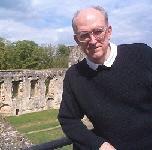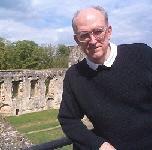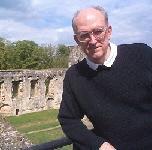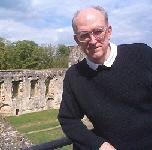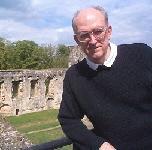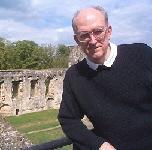Human resilience: reflections of a confined concert pianist
For many months, I have been practicing the same ritual -- getting up early in the morning, walking for thirty minutes, having breakfast, and then hitting the piano. Like every musician worthy of the name, to follow a ritual made up of discipline, respect, and love of the music is an essential routine.
As covid-19 restrictions begin to ease, it is perhaps time to reflect on some of the basics of this profession and what we have learned from more than a year of privations. How does repetitive work in solitude help us and improve us?
Of course repetition is the basis of all musical learning, especially the piano -- first very slowly following a score to assimilate the details, the fingerings the polyphonic clarity of the voices, the sound layers, the contrasts and nuances, the dynamics, the tempo, the sonority and so many other dimensions. And as assimilation takes place, the difficulties fade away to allow more freedom.
A gradual mental and physical "liberation" takes hold, the musical instinct is deployed, the interpretation begins and everything becomes possible.
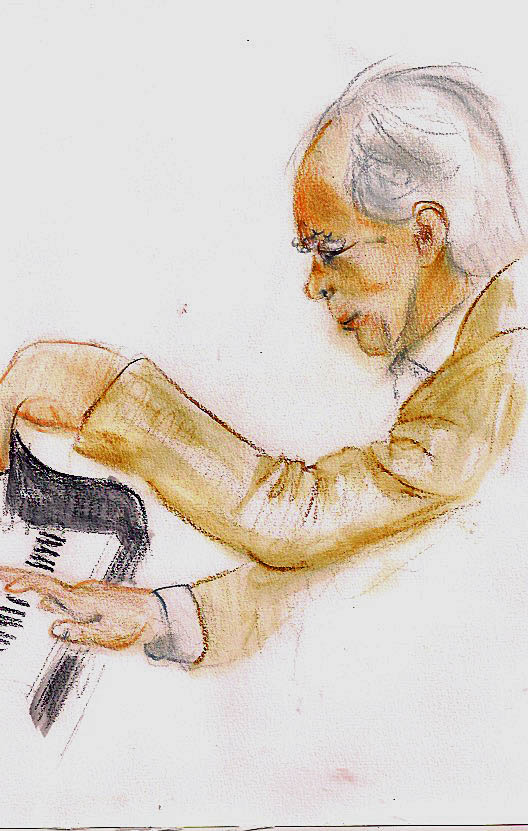
But I also write today of the lifeblood of the musician's happiness, the presence of an audience and the fixed deadline of a performance. I have suffered these long weeks of practicing without preparing for a concert, without defined dates, without being able to fear the presence of an audience. I have wondered many times whether we need to be listened to in order to be happy in music. This confinement has confirmed to me once again that the answer is clearly yes.
And yet, much that relates to a concert has nothing to do with the music: negotiation with your agent, the travel and the date of departure, the fee. We need to feel the fateful date of the great evening approaching like a threat to oneself (you have to be a bit of a masochist to do this job). The anxieties on the day of the concert, the lack of sleep, finally the feeling of readiness, even down to the pleasure of formal dressing. All that we don't think about consciously during the daily work because it is simply ingrained in the life of a musician. The piano is floating in these dreams, these questions, these fears, and it travels with us, outside and far from our home. With those dreams, there would hardly be a need for a home. This is why the next day and the days that follow are so painful. We are emptied, everything has disappeared and we have the impression of landing alone in a desert.
In fact the artist is now from nowhere, living only in his dreams and confinement, like a force of gravity bringing the musician back to reality. It’s not just the virus that can kill, it’s also not being able to dream, and being left with the cold obligation to compensate by introspection ever more intensely but terribly heavy and trying. During this "forced resilience" which I dare call a traumatic experience for a musician, I once imagined playing a "virtual" concert at home, for which I had begged people to come and listen to me. I have to give everything in these concerts, but without any question of gain or fee, the prerogatives of a profession that did not exist anymore. I just had to play, play as much as possible to make the black and poisoned tentacles of this horrible confinement recede and disappear.
The French neuropsychiatrist Boris Cyrulnik has brilliantly explained that it can be the lack of comfort, of plans, ultimately the poverty, which forces us to meet the challenges by creating obstacles and difficulties through hard work. Recovery from these tribulations is all about our capacity for resilience. Over the past few months, I have felt the need to struggle, to prove something, to challenge myself so as not to fall into depression.
When my concerts suddenly ended in March of last year, I had thought, I admit -- and I'm not the only one to say to myself -- "Finally to what end?” “Why bother?” There was the piano, in my living room, and I was alone with it, without a plan for either of us, without travel because even if each concert makes us play on a different piano. This confinement and the lack of certainty is a test of courage, for the emotional and nervous system, and it connects us more than ever to our human condition, of work and quest for access to worlds not easily reached.
Hopeful for a release from all this, and again on stage as concerts resume, I will be able to measure whether my work and my perseverance in solitude have given me more power to free myself and share the happiness of music with the people who come to hear me. I continue to prepare for it with a feeling of hope and good will.
What surprises await me? Perhaps I will return to the music of Beethoven, which for a long time has been my daily bread. What a joy to have Beethoven -- sometimes you have the impression that he is taking you by the hand to help you continue. In his compositions, there is a very frequent dynamic that is one of his characteristics: the "crescendo-piano". We find this over and over again in all his works, and yet why does crescendo lead to a piano? The only possibility of interpretation is to imagine that this crescendo cannot succeed, it leads a new beginning of sorts.
This ordeal that we have been experiencing may prove to be an obligation for every musician to wipe the slate clean. We will have to try and come back from it with a certain lightness and good humor ... a bit like the search for musical moments, as in Schubert’s “Six Moments Musicaux”. In this video clip, I demonstrate the reflections – the humor, the joy, the optimism, the depth -- that a genius can provide through his
inspired compositions, however small, however light.
Rierre Réach is a leading pedagogue and interpreter of Beethoven and Bach. He performs worldwide and is in frequent demand for masterclasses. He is currently recording a selection of Beethoven sonatas.
This essay appears in different form in the current Revue française de psychosomatique, Paris.
Editing by Michael Johnson



